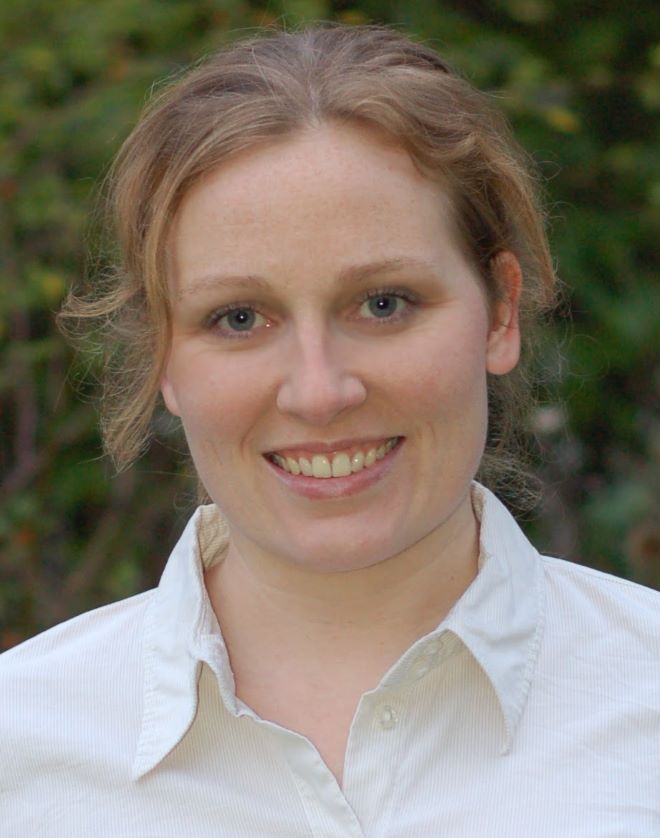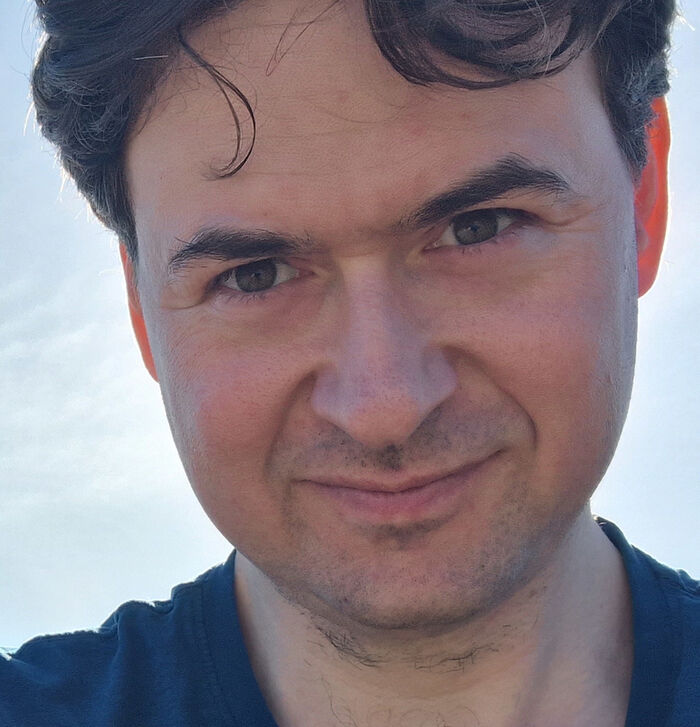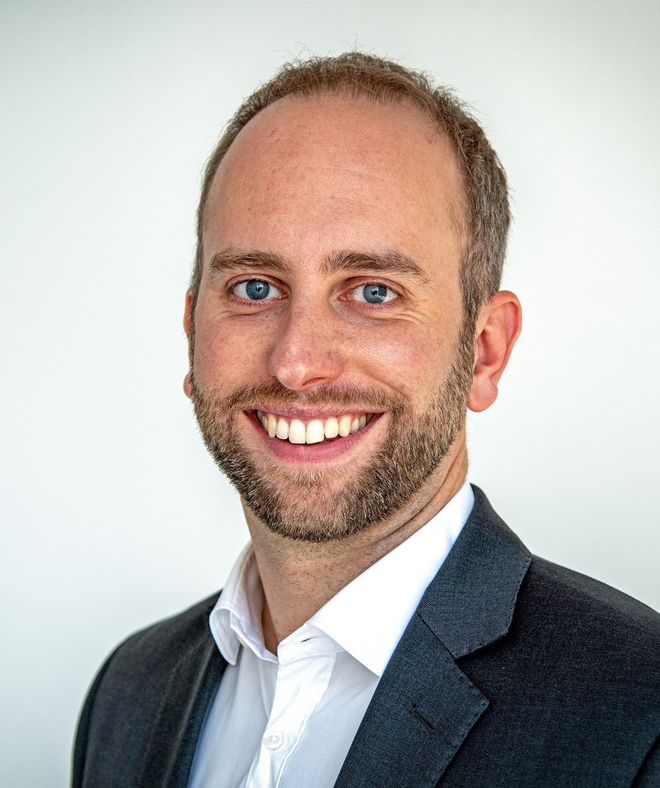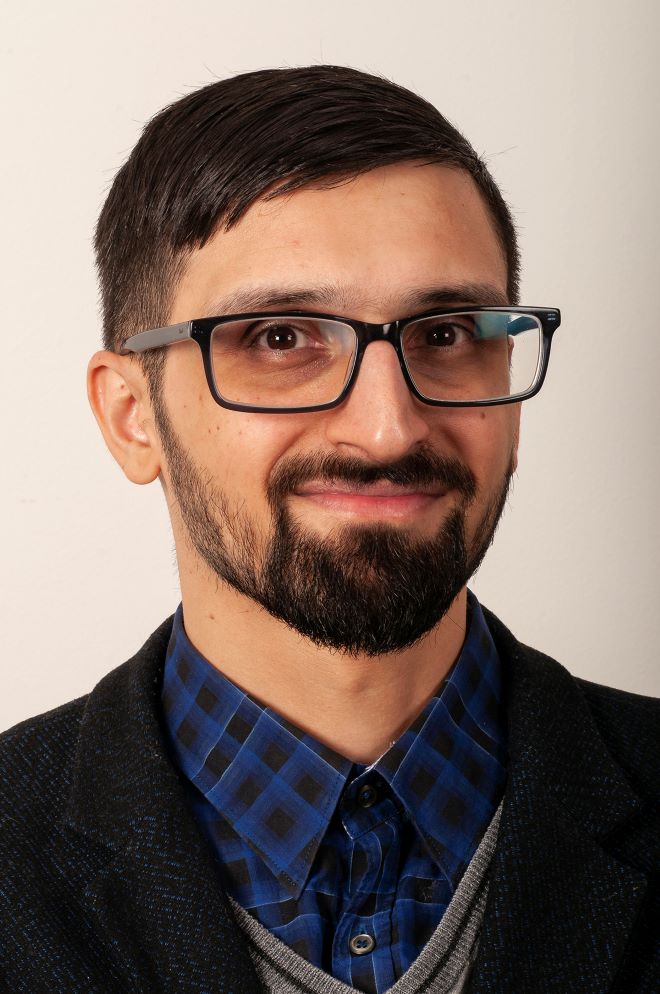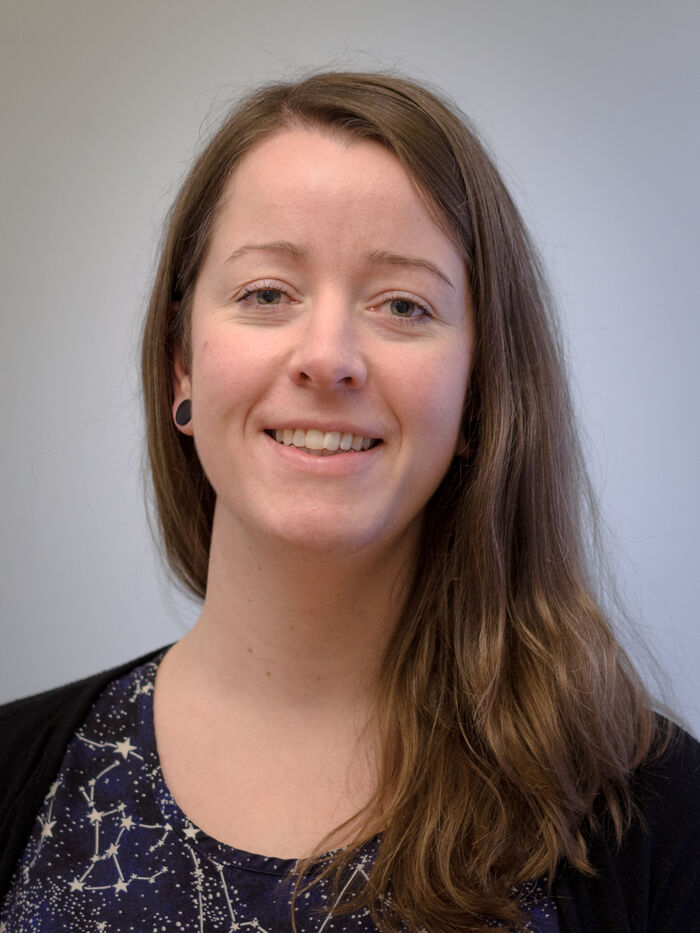Tidligere arrangementer - Side 38
Bernhard Hollick (IAKH, UiO)
Assistant Professor of Musicology, Michiel Kamp, from Utrecht University, will speak at RITMO's Seminar Series
Once a month, NCMM invites international guest speakers to present on topics within molecular life science and medicine.
Seminar with Marta Hanson.
Active solids consume energy to allow for actuation and shape change not possible in equilibrium. In this talk, I will focus on the elasticity of systems as wide-ranging as far-from-equilibrium hydrogels, nanoparticles, and mechanical structures composed of active robotic components. First, I will introduce our recent work on hydrogel spheres being lowered onto a hot plate. As the bottom vaporises, the resulting flow couples tightly to elastic deformations within the sphere, giving either spontaneous bouncing or steady-state floating as manifestations of the so-called elastic Leidenfrost effect. I will present theory and simulations of the floating case, which demonstrate a remarkable phenomenon: the heavier the solid, the higher it floats. I will then discuss the general competition between active boundary stresses and an elastic bulk, giving rise to so-called active elastocapillarity. Finally, I will discuss our current work on using non-reciprocal interactions in active elastic media to program robust mechanical actuation and locomotion. In each case, our results provide theoretical underpinning for recent experimental advances, and point to the design of novel soft machines.
Mingle meeting at ITA with updates and cake.
I will discuss the “geometric method” for syzygies and discuss applications to the study of tautological bundles of linear spaces. From this, I will explain how to pass from realizable matroids to all matroids via initial degenerations. This is joint work in progress with Alex Fink and Chris Eur.
Department seminar. Kathrin Schlafmann is an Assistant Professor at the Copenhagen Business School. She will present the paper: "Expectations and Wealth Heterogeneity in the Macroeconomy" (written with Tobias Broer, Alexandre Kohlhas, and Kurt Mitman).
A finite graph determines a Kirchhoff polynomial, which is a squarefree, homogeneous polynomial in a set of variables indexed by the edges. The Kirchhoff polynomial appears in an integrand in the study of particle interactions in high-energy physics, and this provides some incentive to study the motives and periods arising from the projective hypersurface cut out by such a polynomial.
From the geometric perspective, work of Bloch, Esnault and Kreimer (2006) suggested that the most natural object of study is a polynomial determined by a linear matroid realization, for which the Kirchhoff polynomial is a special case.
I will describe some ongoing joint work with Delphine Pol, Mathias Schulze, and Uli Walther on the interplay between geometry and matroid combinatorics for this family of objects.
QOMBINE seminar by Roy Araiza (University of Illinois Urbana-Champaign)
By Franck L. P. Lejzerowicz, Postdoc at AQUA, IBV
Innovations in fluid mechanics are leading to better food since ancient history, while creativity in cooking inspires applied and fundamental science. In this talk, I will discuss how recent advances in hydrodynamics are changing food science, and how the surprising phenomena that arise in the kitchen lead to discoveries and technologies across the disciplines, including rheology and soft matter. Central topics include cocktails and champagne (multiphase flows), whipped cream (complex fluids) and pancake making (viscous flows). For every topic, I will present the state-of-the-art knowledge, the open problems, and likely directions for future research.
Publications:
Mathijssen, A. J., Lisicki, M., Prakash, V. N., & Mossige, E. J. (2023). Culinary fluid mechanics and other currents in food science. Reviews of Modern Physics, 95(2), 025004.
Fuller, G. G., Lisicki, M., Mathijssen, A. J., Mossige, E. J., Pasquino, R., Prakash, V. N., & Ramos, L. (2022). Kitchen flows: Making science more accessible, affordable, and curiosity driven. Physics of Fluids, 34(11).
Sigurd K. N?ss, Researcher at Institute of Theoretical Astrophysics, University of Oslo.
Department seminar. Sebastian Siegloch is a Professor of Economics at the University of Cologne.
Felleskollokvium by Dr. Antoine Camper, Dept. of Physics, UiO
C*-algebra seminar talk by Valerio Proietti (University of Oslo)
On the 12th and 13th of September 2023 Ariane Dupont-Kieffer will give four lectures about the history of econometrics and the specific contributions of Frisch and Haavelmo in the formative period of econometrics as discipline specific methodology. The lectures are open to all interested.
On the 12th and 13th of September 2023 Ariane Dupont-Kieffer will give four lectures about the history of econometrics and the specific contributions of Frisch and Haavelmo in the formative period of econometrics as discipline specific methodology. The lectures are open to all interested.
Department seminar. Danial Ali Akbari is an Assistant Professor at the Department of Economics, University of Oslo. He will present the paper: "Technology Adoption and Human Capital Accumulation."
By Sally Otto and Michael Whitlock from the University of British Columbia, Vancouver, Canada
Ragnhild Aurvik, Ph.D student at Institute of Theoretical Astrophysics, University of Oslo.
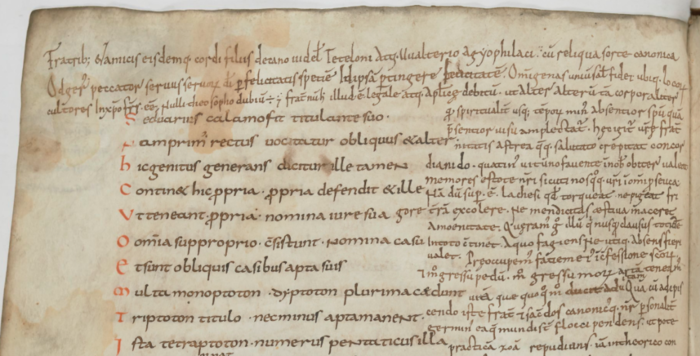

.jpg?alt=listing)



